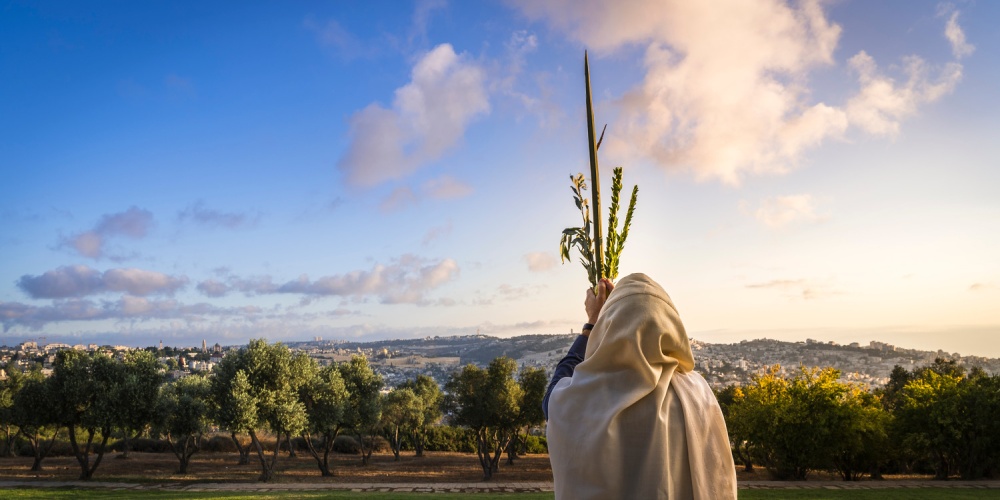“And you shall take for yourselves on the first day, the fruit of the hadar tree, date palm fronds, a branch of a braided tree, and willows of the brook, and you shall rejoice before the Lord your G-d for seven days" (Vayikra 23:40). As the above verse indicates, Biblical law requires that the arba minim, the four species are to be taken bayom harishon, on the first day of Sukkot[1]. Our Rabbis, sensitive to every nuance in the text, saw in the reference to the first day - after all, Sukkot is on the fifteenth day of the month - an additional layer of meaning. They assert that Sukkot is the “first day of [the counting of] sin” (see the commentary of the Kli Yakar to Vayikra 23:40).
With people on their best behaviour throughout the High Holiday season, focusing on teshuva and busy catching up and preparing for Sukkot in the days following Yom Kippur, it is only with the arrival of Sukkot that people have time to relax and begin sinning for the year. Who would dare talk lashon hara during the aseret yemei teshuva between Rosh Hashanah and Yom Kippur? Sukkot, however, is a different matter. The relaxed and joyous atmosphere of the holiday tends to lend itself to letting our guard down. Though barely observed today, it is not by accident the custom of BeHaB, of fasting for three days after Sukkot, was developed. By the time Simchat Torah rolls around, the serious days of the Yamim Noraim can be a distant memory.
In equating Sukkot with sin, the Rabbis were not only referring to the timing of sin but also to the nature of sin. The sin of failing to imbibe the message of Sukkot is the first and primary sin of the Jewish people.
While the intense days of Rosh Hashanah focus primarily on the individual, on introspection, the focus on Sukkot is communal. Rabbinic teachings are replete with identifying the four species with four very different types of Jews. If one of the “species” - including the lowly arava, representing the ignorant and non-observant Jew - is missing, the entire set is invalidated.
Commenting on the verse “everyone included in Israel must live in Sukkot” (Vayikra 23:42), the Talmud notes (Sukka 27b) that all of Israel must be fit to sit together in one Sukkah. Sukkot is zman simchatenu, the time of our joy. And the Torah always equates joy with all in the community coming together. “You shall rejoice on your festival along with your son and daughter, your servants, the Levite, the stranger, orphan and widow” (Devarim 16:14).
Yet it has proven so hard for the Jewish people to unite the disparate elements of our community, to open our sukkah to all. Instead of welcoming all Jews under one roof, we excel at pointing out our differences from each other. Our rejection of the people and not just the ideas they espouse, ideas we may legitimately disagree with, allows us to dismiss all but those who fit our narrow little perspective.
Sukkot is the time to celebrate the unity of the Jewish people and thus was the time chosen by Shlomo Hamelech to celebrate the dedication of the Temple. Sinnat Chinam, baseless hatred and apathy, the antithesis of Sukkot and the cause of the loss of the Temple, continues to be the “first sin” of the Jewish people.
The sin of Sukkot, of tearing people apart, is actually alluded to much earlier in history. “And the man said: the woman that You gave me - she gave me what I ate from the tree” (Breisheet 3:12). Confronted by G-d after eating from the forbidden tree, man blames his wife - thus severing the bond that had made them into “one flesh” (Breisheet 2:25). In clarifying this first sin, our Sages insightfully identify the forbidden fruit with the etrog.
Sukkot is the holiday of Jewish unity. With so few of us in the world, and with so many enemies ready to do us harm, all we have to protect us is the flimsy Sukkah that brings all Jews together. If we succeed in properly celebrating Sukkot, then we can be confident that our prayers for G-d to bring the “Sukkat Shlomecha, shelter of peace upon us, upon all His people of Israel and upon Jerusalem” will be answered, and the city of peace will soon be realized.
[1] Our Sages understood the obligation to rejoice for seven days as referring to the Temple, where we are "before G-d".

